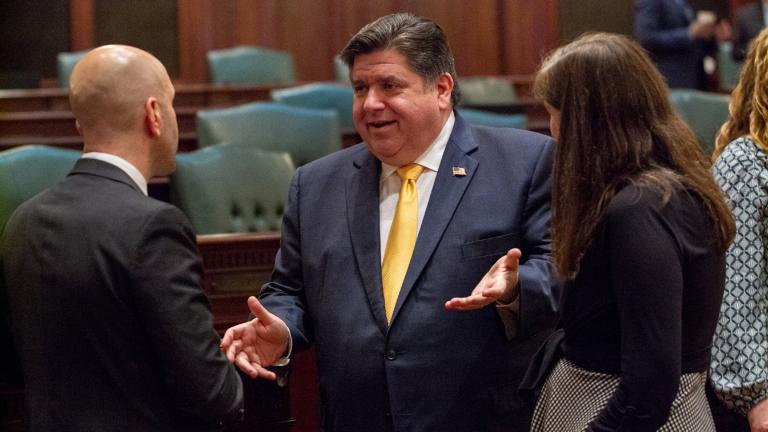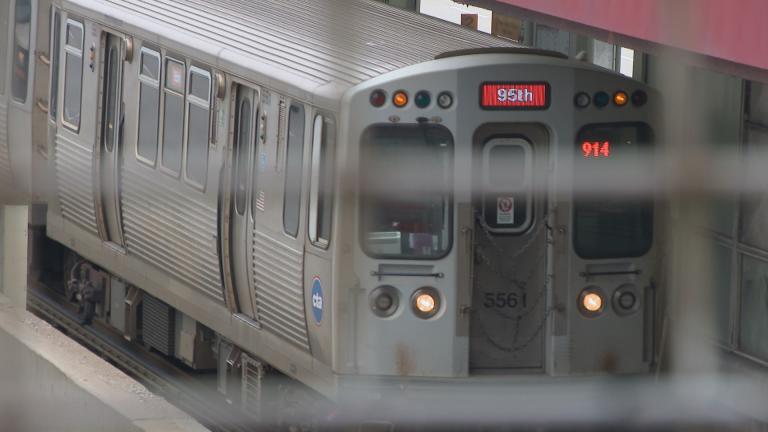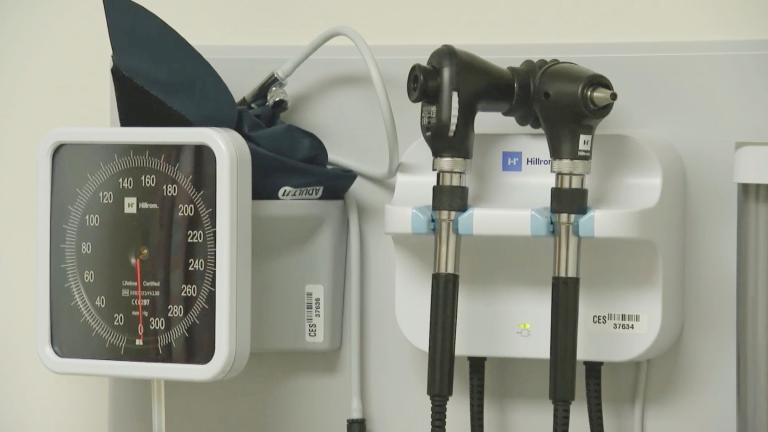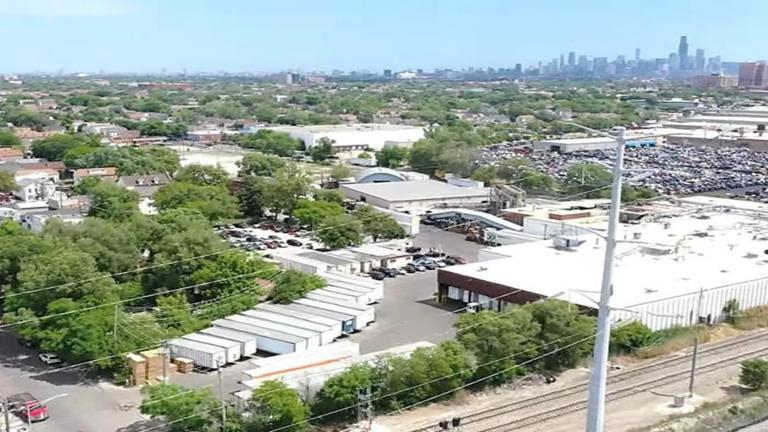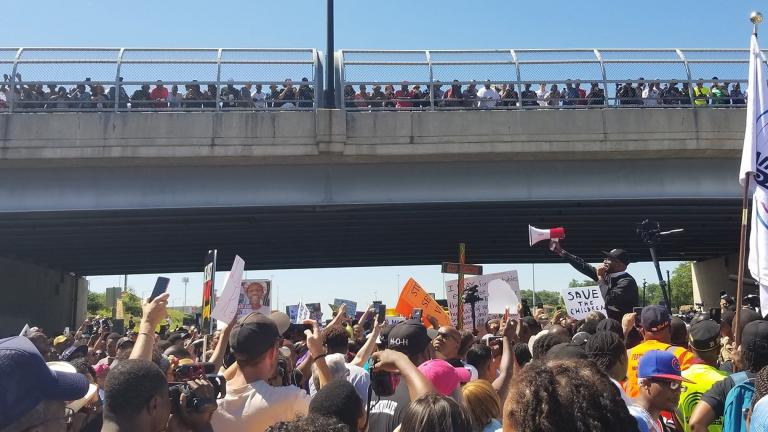Chicago Mayor Lori Lightfoot isn’t folding her cards just yet on a new casino tax structure, though a deal proved elusive Wednesday. That leaves just one remaining day in the veto session for a framework to be finalized and get through both chambers of the Illinois General Assembly.
It’s technically possible, though a tall order.
After mulling the prospect for years, legislators earlier this year approved a massive gambling package that paves the way for six new casinos, including one in Chicago.
But an independent study found that the tax structure for a Chicago casino laid out in that law would be onerous, leaving a potential operator with little profit – and not much incentive to bid on the project in the first place.
Lightfoot on Tuesday visited the capitol in an attempt to persuade lawmakers to partake in the politically dicey task of reopening the gambling law to fix the tax issue.
It’s in their collective best interest, given that the state has essentially already spent the share it is expecting from proceeds of a mega-gambling complex in the city on Gov. J.B. Pritkzer’s much-touted infrastructure program.
The city would direct its cut of the proceeds to underfunded police and firefighter pension funds; the city projected during a hearing Wednesday that that should be about $200 million annually once a casino’s up and running.
“We’ve got to open this Chicago casino. If we don’t open a Chicago casino, our vertical capital bill will be destitute in my mind,” said Democratic state Sen. Terry Link, who helped his hometown of Waukegan get one of the new casinos. “The tax rate that Chicago’s paying will still be higher than all the casinos in the state other than their own, so it’s not like they’re getting a special deal.”
But some legislators are wary about the location of a city casino. Should Chicago put its casino on the southern edges of the city, it would cut into a planned-for south suburban casino (gaming regulators will determine which community will play host to that casino; there are a handful of competing options).
Others say Chicago is, in fact, getting a special deal, and in redoing the tax structure the state will see less in its offers.
“How do we tell all these other communities that have gaming in economically depressed areas that are struggling that Chicago’s going to get a better deal with paying the state than everyone else? And then how do we tell others that the capital plan’s going to receive $140 a million a year less in revenue, which means a lot of capital projects throughout the state are not going to get done now,” said Sen. Dave Syverson, a Republican from Rockford, another community awarded a casino.
The Senate had planned to take up a new tax framework, outlined in SB669, Senate Amendment 1, on Wednesday night, but at the last minute that was called off as negotiators from the city were still in protracted negotiations with House lawmakers on a potential deal.
“The governor has said from the outset that it’s important for all parties to get the Chicago casino right, including maximizing the opportunities for jobs for residents and revenue to address our financial obligations, and if the city’s gaming legislation reaches his desk, he will sign the bill. Over the past several days, staff from the city, both the House and the Senate and the governor’s office have discussed the contours of a proposal, and there has been broad agreement from the parties. Our understanding is that legislators will be filing a bill shortly, and the governor would encourage lawmakers to support it,” the governor’s office said in an emailed statement Wednesday afternoon.
Meanwhile, Pritzker’s main priority for the legislative veto session advanced on Wednesday, as the House on a 96-14 vote approved a local pension fund consolidation measure.
Under Senate Bill 1300, some 650 local fire and police pension funds (not counting Chicago’s) would be combined into two, essentially pooling their assets to save on fees and to increase potential investment returns.
“Consolidating these small funds means that they could improve their investment returns by as much as $2.5 billion over the next five years,” the Democrat said in a statement. “I look forward to the Senate moving forward on a measure that has earned the support of local municipalities, firefighters and police officers. I urge the Senate to swiftly pass this legislation so we can continue improving our state’s fiscal health and secure the retirements of the workers who earned them.”
Some lawmakers were skeptical the measure will yield the full $2.5 billion in savings, given a lack of actuarial analysis, especially considering that the measure also enhances the retirement benefits of police officers and fire fighters hired after 2011, by bringing their lesser “tier 2” benefits on par with municipal emergency workers hired prior to that time.
“What I’m hearing today is that we should just accept the governor’s numbers, the task force numbers. Just trust us because we’re the government and we have a great financial track record on this kind of thing. Not providing this kind of stuff just makes this whole process look bad,” Fayette County Republican Rep. Blaine Wilhour said.
The Senate is expected to debate the plan on Thursday, the final day of the two-week veto session.
Follow Amanda Vinicky on Twitter: @AmandaVinicky
Related stories:
Lobbying by Sitting Illinois Lawmakers Under Scrutiny
Lightfoot’s Proposed Real Estate Transfer Tax Hike Gets Pushback
Ethylene Oxide Ban Narrowly Passes Illinois House
Illinois House Passes Bill Allowing College Athlete Endorsement Deals
Illinois House Moves to Investigate Indicted Representative
Latest Corruption Charge Has Legislators Squirming

